European Commission priorities for 2024-2029. The view from Poland on energy and climate
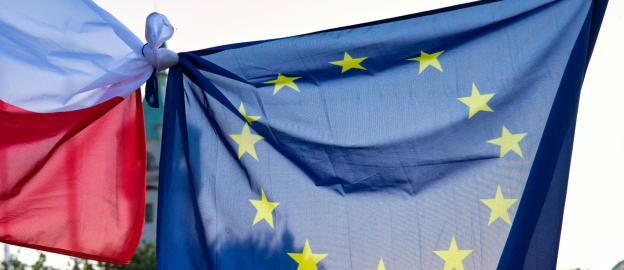
The upcoming European Parliament elections will open a new chapter in EU climate and energy policy. The new European Commission, which begins its 5-year term in the fall, will have to monitor the implementation of a wide range of files related to the ‘Fit for 55’ package and navigating the Union towards the 2050 goals by setting targets for 2040. It will also certainly propose a new political strategy, as the dynamics of the discussion in the EU is in a state of constant flux. From Poland’s perspective, what new priorities of the European Commission will be most important and gain support and interest?
Read More
European Commission priorities for 2024-2029. The view from Poland on energy and climate
The upcoming European Parliament elections will open a new chapter in EU climate and energy policy. The new European Commission, which begins its 5-year term in the fall, will have to monitor the implementation of a wide range of files related to the ‘Fit for 55’ package and navigating the Union towards the 2050 goals by setting targets for 2040. It will also certainly propose a new political strategy, as the dynamics of the discussion in the EU is in a state of constant flux. From Poland’s perspective, what new priorities of the European Commission will be most important and gain support and interest?
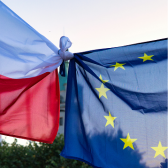
Eighth capacity market auction—high time for the flexibility market

At the end of December, one of the last power market auctions took place. Under this form of state aid, contracts so far concluded have been for nearly PLN 90 billion (nominally), which will be repaid until 2044. Financing for them comes from electricity consumers, in the average household electricity bill, in which the power market fee accounts for about 7%. This mechanism, although costly, allows maintaining capacity in the power system. So far, however, it has mainly generated subsidies for existing and new coal and gas-fired power plants. The eighth auction turned out to be different from the previous ones: it was decentralised, clean, cheaper and battery-based. Instead, there is no new generating capacity.
Read More
Eighth capacity market auction—high time for the flexibility market
At the end of December, one of the last power market auctions took place. Under this form of state aid, contracts so far concluded have been for nearly PLN 90 billion (nominally), which will be repaid until 2044. Financing for them comes from electricity consumers, in the average household electricity bill, in which the power market fee accounts for about 7%. This mechanism, although costly, allows maintaining capacity in the power system. So far, however, it has mainly generated subsidies for existing and new coal and gas-fired power plants. The eighth auction turned out to be different from the previous ones: it was decentralised, clean, cheaper and battery-based. Instead, there is no new generating capacity.

Planning Poland’s Climate and Energy strategies in a new political opening

Poland’s new coalition government has declared a new opening in energy policy and offers much more ambitious transition goals, although the details of which are yet to be worked out. One of the first tasks of the new government is to propose a series of climate and energy strategies. Polarised opinions, attempts at disinformation, and political tension will make creating these guiding documents quite difficult. The preparation of the country's new energy and climate policy should be underpinned by sound analyses to justify the choices made. A council composed of the country's leading experts should be established to be a substantive voice in the process.
Read More
Planning Poland’s Climate and Energy strategies in a new political opening
Poland’s new coalition government has declared a new opening in energy policy and offers much more ambitious transition goals, although the details of which are yet to be worked out. One of the first tasks of the new government is to propose a series of climate and energy strategies. Polarised opinions, attempts at disinformation, and political tension will make creating these guiding documents quite difficult. The preparation of the country's new energy and climate policy should be underpinned by sound analyses to justify the choices made. A council composed of the country's leading experts should be established to be a substantive voice in the process.

How to ‘uncoal’ Poland

The new government has a long list of decisions to make. Neglected power plant repairs, the poor condition of distribution networks, an unfinished project to spin off coal assets, and a declining mining industry. On top of that, there is downward pressure on electricity prices. Each of these areas requires immediate decisions and large amounts of money.
Read More
How to ‘uncoal’ Poland
The new government has a long list of decisions to make. Neglected power plant repairs, the poor condition of distribution networks, an unfinished project to spin off coal assets, and a declining mining industry. On top of that, there is downward pressure on electricity prices. Each of these areas requires immediate decisions and large amounts of money.

Anatomy of Dependence: How to Eliminate Rosatom from Europe

EU countries depend on cooperation with Russia in the nuclear field. This has resulted in Rosatom not being sanctioned after the Russian full-scale invasion of Ukraine, and trade in this sector is growing. This situation is disadvantageous for the EU and increases its vulnerability to Russian blackmail. Moreover, it strengthens the Russian military. The EU should increase its efforts to diversify supplies and build its own capabilities in the nuclear sector.
Read More
Anatomy of Dependence: How to Eliminate Rosatom from Europe
EU countries depend on cooperation with Russia in the nuclear field. This has resulted in Rosatom not being sanctioned after the Russian full-scale invasion of Ukraine, and trade in this sector is growing. This situation is disadvantageous for the EU and increases its vulnerability to Russian blackmail. Moreover, it strengthens the Russian military. The EU should increase its efforts to diversify supplies and build its own capabilities in the nuclear sector.

The electricity system needs heating sector
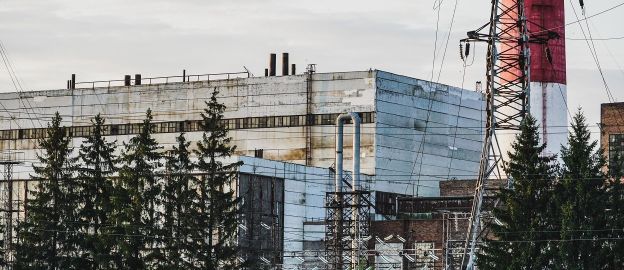
The National Power System (NPS) will face new challenges. These include the uninterrupted supply of energy to consumers when the oldest and most emission-intensive generating units are phased out, but also the efficient use of variable RES sources. District heating may be the key to solving NPS problems. In peak demand of the NPS, additional energy can be provided by cogeneration units, in times of surplus energy in the system - it can be absorbed by electric boilers producing cheap heat. The operation of CHP units can also improve the performance of electricity grids.
Read More
The electricity system needs heating sector
The National Power System (NPS) will face new challenges. These include the uninterrupted supply of energy to consumers when the oldest and most emission-intensive generating units are phased out, but also the efficient use of variable RES sources. District heating may be the key to solving NPS problems. In peak demand of the NPS, additional energy can be provided by cogeneration units, in times of surplus energy in the system - it can be absorbed by electric boilers producing cheap heat. The operation of CHP units can also improve the performance of electricity grids.

Energy transition in Poland | 2023 edition

2022 was another year of unexpected events. Russia’s full-scale invasion of Ukraine changed Europe’s approach to fossil fuel imports, particularly from Russia. The resulting energy crisis triggered by high gas prices and the decline in nuclear and hydroelectric production led to record high energy prices across Europe. These events are changing the way European countries look at the energy transition. Meanwhile, the modernisation of the Polish energy sector is still very slow. An overview of the increasingly comprehensive data on the energy sector is published by Forum Energii in the sixth edition of the report ‘Energy Transition in Poland. Edition 2023’.
Read More
Energy transition in Poland | 2023 edition
2022 was another year of unexpected events. Russia’s full-scale invasion of Ukraine changed Europe’s approach to fossil fuel imports, particularly from Russia. The resulting energy crisis triggered by high gas prices and the decline in nuclear and hydroelectric production led to record high energy prices across Europe. These events are changing the way European countries look at the energy transition. Meanwhile, the modernisation of the Polish energy sector is still very slow. An overview of the increasingly comprehensive data on the energy sector is published by Forum Energii in the sixth edition of the report ‘Energy Transition in Poland. Edition 2023’.

Billions of Euros for LNG and LPG still flowing from the EU to Russia

The EU embargo on Russian fuels did not extend to natural gas (including LNG, liquefied natural gas) or LPG (liquefied petroleum gas). In 2022 alone, EU countries paid as much as 16 billion euros for Russian LNG, a record high. Poland did not import any LNG from Russia, however it is the largest importer of LPG in the entire EU. In 2022, Poland spent about 700 million euros on Russian LPG. In this article, Forum Energii will explain how to close the loopholes in the EU embargo on Russian resources to finally eliminate them from the EU market.
Read More
Billions of Euros for LNG and LPG still flowing from the EU to Russia
The EU embargo on Russian fuels did not extend to natural gas (including LNG, liquefied natural gas) or LPG (liquefied petroleum gas). In 2022 alone, EU countries paid as much as 16 billion euros for Russian LNG, a record high. Poland did not import any LNG from Russia, however it is the largest importer of LPG in the entire EU. In 2022, Poland spent about 700 million euros on Russian LPG. In this article, Forum Energii will explain how to close the loopholes in the EU embargo on Russian resources to finally eliminate them from the EU market.
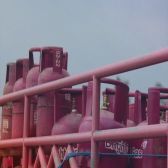
Russian oil disappearing from Europe

In 2021, about a quarter of the oil used in the EU, about €48 billion worth in total, came from Russia. The invasion of Ukraine prompted EU countries to impose sanctions on this commodity. However, the sanctions contain loopholes that have made Poland the EU’s largest importer of Russian oil. While sealing the sanctions regime is possible, electrification of transportation will in the long run safeguard against the risk of replacing dependence on Russia with dependence on other petrostates.
Read More
Russian oil disappearing from Europe
In 2021, about a quarter of the oil used in the EU, about €48 billion worth in total, came from Russia. The invasion of Ukraine prompted EU countries to impose sanctions on this commodity. However, the sanctions contain loopholes that have made Poland the EU’s largest importer of Russian oil. While sealing the sanctions regime is possible, electrification of transportation will in the long run safeguard against the risk of replacing dependence on Russia with dependence on other petrostates.

Conclusions from the 7th capacity market auction - cleaner, but adequacy remains a challenge

The results of the seventh auction in the Polish capacity market clearly show the dilemma Poland has faced - existing high-carbon (coal) capacity can no longer be supported with this mechanism, while gas is risky due to the geopolitical situation. Although Polish energy companies have not completely abandoned gas projects, fewer appeared in the auction than previously announced. There is also clearly a greater variety of technologies than before - for the first time, contracts were granted to storage. The market is still expensive - for the second year in a row auctions ended in the first round and at the maximum price.
Read More
Conclusions from the 7th capacity market auction - cleaner, but adequacy remains a challenge
The results of the seventh auction in the Polish capacity market clearly show the dilemma Poland has faced - existing high-carbon (coal) capacity can no longer be supported with this mechanism, while gas is risky due to the geopolitical situation. Although Polish energy companies have not completely abandoned gas projects, fewer appeared in the auction than previously announced. There is also clearly a greater variety of technologies than before - for the first time, contracts were granted to storage. The market is still expensive - for the second year in a row auctions ended in the first round and at the maximum price.

Renewables can reduce fuel imports
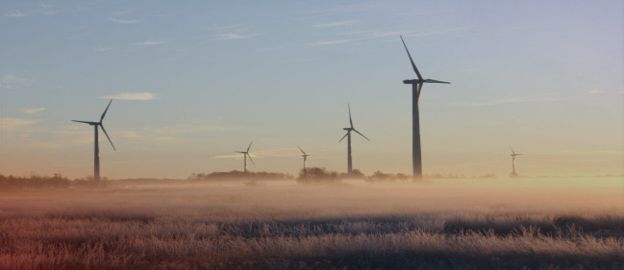
Last year the import of gas, oil and coal cost Poland PLN 89 billion. This year, it will be much more - by the end of June it already amounted to PLN 85 billion. The supply crunch and spike in fuel prices have become the source of an economic and energy crisis, and a means of exerting pressure on Europe. Meanwhile, renewables not only reduce emissions and energy prices, but also import dependency on energy resources.
Read More
Renewables can reduce fuel imports
Last year the import of gas, oil and coal cost Poland PLN 89 billion. This year, it will be much more - by the end of June it already amounted to PLN 85 billion. The supply crunch and spike in fuel prices have become the source of an economic and energy crisis, and a means of exerting pressure on Europe. Meanwhile, renewables not only reduce emissions and energy prices, but also import dependency on energy resources.

Energy in Belchatow After Lignite

Transitioning Europe's largest coal power plant to a secure, resilient, affordable clean energy future. New study outlines a transition plan for Europe’s largest coal-fired power plant, located in Belchatow, Poland.
Read More
Energy in Belchatow After Lignite
Transitioning Europe's largest coal power plant to a secure, resilient, affordable clean energy future. New study outlines a transition plan for Europe’s largest coal-fired power plant, located in Belchatow, Poland.
